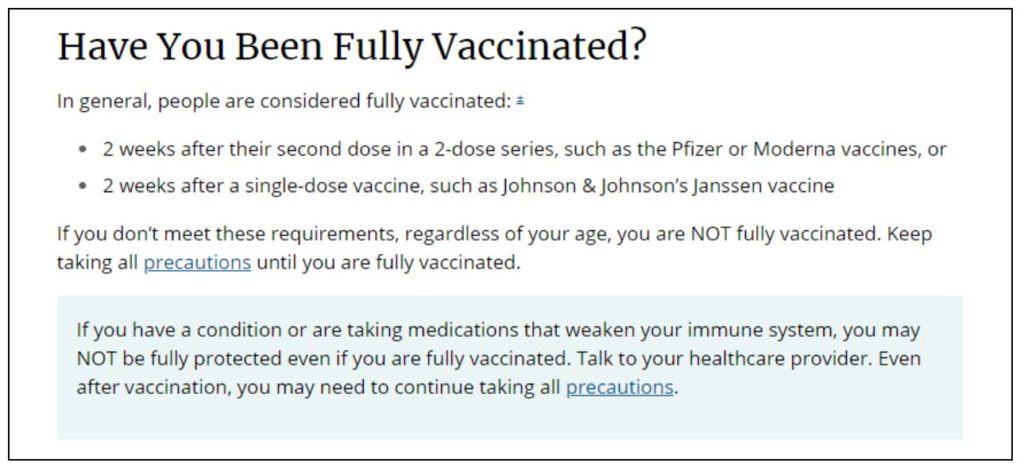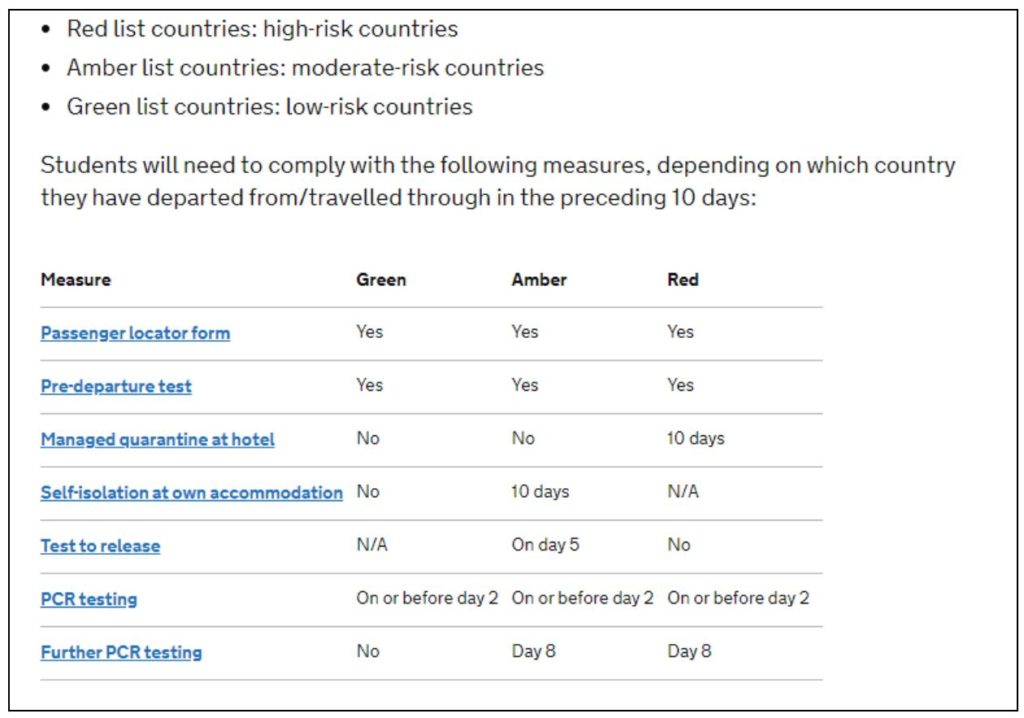Many universities in the US, UK and other countries are beginning physical in-person classes from Fall of 2021. Most universities in the US have stipulated a mandatory vaccination for students, that too with only one of the WHO-approved vaccines. The Indian students might find it difficult as only Covishield is approved by WHO and its dosage interval in 12 to 16 weeks.
After more than a year of online classes and distance learning, many universities outside India are gearing up to resume in-person academic sessions from the Fall of 2021. In the United States of America (US) alone, more than 400 colleges and universities have mandated that students get vaccinated ahead of the Autumn semester set to begin in August/September, hoping that the upcoming academic year can be a normal one. With the dates of re-opening of many universities abroad close by, Indian students admitted to these universities are rushing to get themselves vaccinated. However, there are multiple concerns for students from India who account for a large share of the international students in countries like the US and UK, as these universities are proposing different measures regarding vaccines. We look at the rules stipulated by some major universities and governments with respect to international students and what this means for Indian students.
Universities have called for complete vaccination of students before returning to campus
US, UK, Canada, and Australia are the most popular destinations for Indian students who wish to study abroad. Out of these, most universities in the US have asked for complete inoculation against COVID-19, of international students before getting back into the campus for regular classes from the Fall of 2021 while Australian and Canadian universities are yet to formulate such rules.
China and India account for 62% of the total international students in US in 2020
According to the Open Doors report of International Education Exchange for 2020, there were more than a million (more than 10 lakh) international students in the US. Students from Asia alone, around 7.6 lakh, accounted for more than 70% of the international students in the US. Students from two of the world’s most populous countries of China and India made up nearly 62% of all the international students in the US in 2020. There were around 1.93 lakh students from India, the second highest after China.
Only those who take FDA approved vaccines are considered fully vaccinated in US
According to CDC, only those who have taken Pfizer, Moderna, or Janssen vaccines are considered fully vaccinated after two weeks of second/single dose as per the vaccine requirement. If one does not meet these requirements, regardless of age, they are considered NOT fully vaccinated.

FDA or WHO approved vaccine mandatory in most universities in the US
One in three students enrolled in Fall 2020 were international students, predominantly from China, India, Canada, South Korea, and France, at Columbia university in New York, US. The university announced in April 2021 that the COVID-19 vaccination was mandatory for all students who will be present on campus, starting fall 2021. It added that religious and medical exemptions will be provided like in the case of influenza and measles vaccines, in accordance with New York State public health laws.
Another notification on the website dated 28 May 2021 stated that students will have to upload vaccine documentation such as a picture or copy of their CDC card, WHO booklet, or a physician letter containing details of their vaccinations to their university’s portal latest by 02 August 2021. Noting that not all international students would have access to vaccines or complete a vaccine series before coming to New York for the upcoming session, the university will administer vaccines in the first week they return to campus. More regarding the vaccine process will be shared in July. Nonetheless, the university recommends that those who arrive in the US earlier must get their vaccine from the nearest site.
The university’s FAQ page on vaccine requirement for students states that Vaccines authorized by the FDA or by WHO will be acceptable. It is to be noted that the FDA has given Emergency Use Authorization to three vaccines- Pfizer-BioNTech, Moderna, and Janssen and the WHO has listed AstraZeneca (Covishield) and Sinopharm vaccines in addition to the three approved by FDA. Recently, the second Chinese vaccine Sinovac was also approved by the WHO.
As per the university guidelines, for individuals who are partially vaccinated with a WHO-authorized vaccine or vaccinated with a vaccine not authorized for emergency use by the WHO, it is necessary that they get revaccinated with an FDA-authorized COVID-19 vaccine after a minimum of 28 days since the vaccination with non-FDA authorized vaccine.
Stanford University and Indiana University have also issued mandatory vaccination guidelines for students similar to that of Columbia University. The university also abides by the guidelines on vaccination as issued by CDC.
The California State University announced that COVID-19 vaccination will be mandatory for students, faculty, and staff who will be physically present on campus or at any university location in Fall provided that FDA gives full approval to one or more COVID-19 vaccines and the fully approved vaccines are available. This requirement will become effective at the beginning of the fall 2021 term, or upon full FDA approval of the vaccine, whichever occurs later.
No requirement for vaccination announced for International students in the UK
According to the Higher Education Statistics Agency(HESA) of the UK, a total of 41,815 students joined for higher education from India in 2019-20, highest after European Union and China. The UK government announced that all English universities could return to in-person teaching from 17 May 2021. Further, students that are traveling to the UK from abroad will have to heed the border measures on their return depending on the country from which they are coming. Students from India, which is on the red-list (or high-risk countries), will have mandatory 10 days quarantine.

Some universities will continue online classes in the next semester in the UK
However, different universities have different plans for re-opening. The University of Cambridge announced various measures for returning students based on certain criteria. The University of Manchester also announced that there will be online lectures for most students barring those who are on practical and practice-based courses, or who require access to specialist equipment or facilities.
The University of Oxford announced that large group teaching and lectures at Oxford were likely to remain online. It added that departments may offer in-person teaching to students on courses that have now been permitted to restart where feasible. If international students wished to return, they must follow national and international travel guidance and must quarantine for ten days on arrival in the UK and taking the RT-PCR test within three days before traveling to the UK. No requirements for vaccination have been mentioned.
Canada and Australia have also not listed any requirement with respect to vaccination
So far, Canada has not made mandatory requirements pertaining to vaccination for International students. However, students may have to undergo mandatory quarantine for up to 14 days. Meanwhile, the Australian Government has prohibited non-Australian citizens from traveling to Australia due to the pandemic as of date.
Many challenges await Indian students
While attending physical classes is desirable for quality education, there are multiple challenges for Indian students admitted to universities in different countries.
In India, the vaccination for those aged 18 years and above began only recently (on 01 May 2021). Only three vaccines are currently approved and available for now, namely- Covishield, Covaxin, and Sputnik. Of these, only Covishield has been approved by the WHO while India’s indigenous Covaxin and Russian Sputnik V have not been approved by the WHO as yet. The time frame for approval of these two vaccines by the WHO is also not clear. While additional data is sought in the case of ‘Sputnik V’, a pre-submission meeting is planned for Covaxin in June 2021, as per the latest available information.
In other words, those students who took either of the two unapproved vaccines may have to get revaccinated with FDA-approved vaccines if they are traveling to the US. However, there are certain concerns regarding revaccination. Firstly, there are no safety or efficacy studies regarding taking two different vaccine candidates. Secondly, based on the gap requirement between different doses and the two weeks requirement of CDC for full vaccination, a student will have to wait for at least five weeks before attending in-person classes in the US. While other countries still do not have a mandatory vaccine requirement, the talk of vaccine passports might make it difficult for students and other Indians who take unapproved vaccines to travel abroad. India’s Health Minister has already expressed concern & strong opposition to ‘vaccine passports’ at this juncture.
Gap between doses and availability are major roadblocks
Though the absolute number of those vaccinated in India is impressive, the share of those vaccinated of the entire population is where India falters. A little over 15% of the population has received at least one dose so far unlike the UK and the US which have vaccinated a large portion of their population.
As observed in one of our earlier stories, India missed the trick by not making advance orders and hence is now facing supply-side constraints. The situation may not improve without a substantial ramping up of the production facilities in the coming months. Coupled with the issue of availability are technical issues and the mandate of dosage gap. Quite a few people have complained about not being able to book slots on the COWIN platform and have jokingly equated this to book a tatkal ticket on the IRCTC website.
The other big concern is the mandatory dosage interval for Covishield. The Indian government has increased the gap between two doses of Covishield to 12 to 16 weeks. In other words, an individual has to wait for a minimum of three months to get both doses. Considering that the fall classes in most universities begin late August and that reporting of vaccination has to be done by the first week of August, many students might find it difficult to get both doses of the WHO-approved Covishield by August. The government also recommends a waiting period of four to eight weeks for those who were infected with the coronavirus prior to vaccination. This means that students who recently got infected may have to wait for up to two months to even get their first dose. In addition to the issues with vaccination, localized lockdowns have also disrupted the issuance of visas to students.
Some states have prioritized vaccination for students going abroad
The states of Kerala and Telangana and the City of Mumbai have prioritized the vaccination process for students going abroad for higher studies. The Kerala Government has also reduced the gap for the two doses of Covishield to 4 to 6 weeks, for those traveling abroad. The Central Government needs to consider these difficulties and make appropriate changes in dosage intervals for those traveling abroad for studies and other needs, on the lines of the Kerala government.
Featured Image: Vaccination for Students


